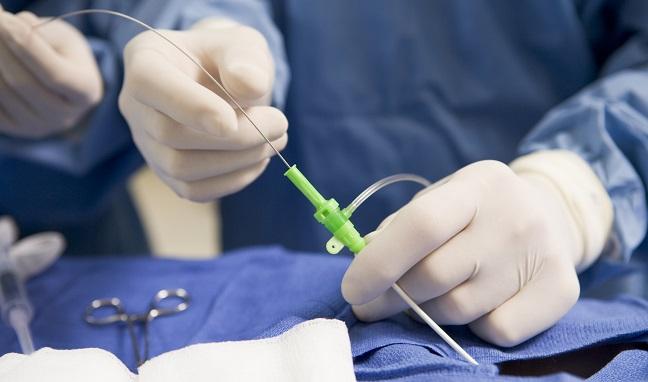How to prepare for a visit to the Cardiologist near me
How to prepare for a visit to the Cardiologist near me
Blog Article
Understanding the Value of Cardiology in Modern Health Care Solutions
Cardiology plays an important role in modern health care, particularly as heart problem remains to be the leading reason for mortality worldwide. Developments in diagnostics and therapy have actually transformed client treatment, making it possible for earlier treatments and improved outcomes. Furthermore, the change in the direction of preventative cardiology empowers people to manage their wellness proactively. As innovation continues to evolve, the assimilation of ingenious solutions might better redefine cardiology's influence on public health, motivating a more detailed examination of arising trends and their implications.
The Prevalence of Heart Problem and Its Influence on Public Health
Heart disease continues to be the leading cause of death internationally, its influence extends far beyond specific clients to impact public health and wellness systems and economic climates. The high occurrence of heart problem positions a substantial pressure on healthcare sources, requiring boosted funding for rehab, prevention, and treatment programs. Public health efforts must deal with danger factors such as weight problems, smoking, and sedentary way of livings, which contribute significantly to the climbing incidence of heart conditions.Moreover, the financial problem related to cardiovascular disease is immense, including not only direct clinical prices however likewise indirect costs associated to lost performance and premature mortality. Neighborhoods deal with obstacles in taking care of these prices, typically causing disparities in healthcare gain access to and outcomes. As the population ages and lifestyle-related threats remain to intensify, the necessity for effective cardiology interventions comes to be critical. Consequently, dealing with heart problem is not only an issue of individual health and wellness yet likewise a critical public health and wellness concern.
Developments in Heart Diagnostics and Imaging Techniques
Current innovations in heart diagnostics and imaging strategies have revolutionized the field of cardiology, improving the ability to monitor and find heart diseases. Techniques such as cardiac MRI, CT angiography, and echocardiography have become increasingly sophisticated, giving detailed pictures of cardiac structures and functions. These techniques enable the very early identification of problems like coronary artery condition, cardiac arrest, and valvular disorders.Moreover, advancements in non-invasive diagnostics, such as wearable modern technology and remote surveillance devices, have actually encouraged clients and healthcare companies. These tools promote real-time monitoring of heart rhythms and other necessary indicators, leading to prompt interventions. Furthermore, expert system is being incorporated right into imaging evaluation, improving accuracy and performance in diagnosis.
Developments in Therapy Options for Heart Conditions
Current advancements in cardiology have actually led to substantial technologies in therapy alternatives for heart disease. These consist of sophisticated medical strategies that boost step-by-step outcomes and arising medications that supply brand-new avenues for treatment. As the field advances, these innovations play an important duty in boosting individual care and outcomes.
Advanced Surgical Techniques
Advancements in medical methods have actually changed the landscape of cardiology, providing new wish for people with heart conditions. Minimally intrusive procedures, such as catheter-based treatments, have significantly reduced recuperation times and healthcare facility keeps. Strategies like robotic-assisted surgery boost accuracy, permitting specialists to browse complicated physiological structures with better precision. Improvements in imaging technology assist in real-time visualization throughout procedures, boosting end results. Transcatheter aortic valve replacement (TAVR) exemplifies a breakthrough in treating aortic constriction, making it possible for valve replacement without open-heart surgical treatment. Additionally, hybrid approaches that combine medical and catheter-based methods offer customized solutions for numerous cardiac concerns. These sophisticated surgical strategies not only improve client security but also increase treatment options, highlighting the important function of advancement in contemporary cardiology methods.
Emerging Therapies and medications
As the landscape of cardiology continues to develop, arising therapies and drugs play a critical duty in enhancing therapy options for heart problems. Innovations such as unique anticoagulants and advanced lipid-lowering representatives have transformed the management of heart diseases, significantly decreasing client morbidity and death. Additionally, the advancement of gene treatments and regenerative medication supplies promising avenues for treating problems formerly considered irreversible. Clinical trials are continually revealing the efficacy of these therapies, pressing the boundaries of typical therapies. The assimilation of electronic wellness technologies promotes individualized medication, allowing for customized treatment plans based on genetic and way of life variables. Collectively, these advancements underscore the dynamic nature of cardiology, enhancing patient outcomes and redefining requirements of care in modern health care.
The Duty of Preventive Cardiology in Patient Care
Preventive cardiology plays a crucial duty in patient treatment by concentrating on the identification of threat factors that contribute to heart disease. With way of life modification methods and very early detection techniques, doctor can efficiently reduce the incidence of cardiovascular events - Dr Garcia. This positive strategy not only improves individual outcomes yet likewise promotes long-lasting wellness
Danger Factor Identification
While cardio illness remain a leading reason for morbidity and mortality worldwide, efficient risk element identification acts as a cornerstone of preventative cardiology. Identifying threat elements such as hypertension, hyperlipidemia, family members, and diabetes mellitus history is essential for very early intervention. Medical care professionals use different evaluating techniques to evaluate these variables, permitting customized safety nets. Furthermore, comprehending an individual's way of living options, such as smoking cigarettes and physical inactivity, even more informs threat assessments. This detailed examination enables medical professionals to establish tailored treatment plans targeted at mitigating threats. By prioritizing danger aspect recognition, health care systems can improve index person end results and reduce the overall worry of cardio conditions, inevitably adding to boosted public health techniques and resource allocation.
Way Of Life Adjustment Methods
A plethora of studies highlights the vital role of way of living adjustment strategies in decreasing heart disease danger. These techniques incorporate nutritional modifications, raised physical task, smoking cessation, and weight management. By taking on a heart-healthy diet regimen rich in fruits, vegetables, entire grains, and lean proteins, people can reduce cholesterol levels and high blood pressure. Normal exercise enhances the heart and boosts overall cardio health. Additionally, stopping smoking cigarettes considerably lowers the threat of heart disease and boosts recovery prices for those with present problems. Weight monitoring even more adds to cardiovascular health and wellness by alleviating various other threat elements such as diabetes and high blood pressure. Carrying out these way of living alters not just promotes private well-being however likewise works as a keystone of preventative cardiology in individual care.
Very Early Discovery Methods
Lifestyle modifications considerably contribute to lowering cardio illness dangers, however they are most efficient when paired with very early discovery techniques. Preventive cardiology stresses the relevance of recognizing potential heart problems before they escalate right into severe problems. Techniques such as blood stress tracking, cholesterol testing, and progressed imaging modern technologies like echocardiograms play critical duties in reviewing cardiovascular health. Biomarkers and hereditary testing additionally improve the accuracy of very early discovery, enabling customized preventative methods. Routine cardiac danger evaluations equip health care service providers to step in proactively, potentially avoiding heart assaults and strokes (Cardiology Jupiter). By integrating these early detection techniques right into routine treatment, clients can profit from timely way of life treatments and targeted therapies, inevitably enhancing and boosting results lifestyle
Integrating Innovation Into Cardiology Practices
As innovations in innovation remain to reshape various areas, the integration of innovative devices and systems into cardiology techniques has actually become necessary for enhancing person care and outcomes. Telemedicine systems permit cardiologists to monitor individuals remotely, enhancing accessibility to care while decreasing the worry on healthcare facilities. Wearable tools, such as smartwatches, allow continuous heart rate tracking, signaling both medical professionals and patients to possible problems in real-time. Additionally, fabricated intelligence (AI) is being used to examine huge quantities of heart data, aiding in early diagnosis and customized treatment plans. Advanced imaging techniques, consisting of 3D echocardiography, improve visualization of heart structures, leading to more precise treatments. Digital wellness records (EHRs) simplify individual details monitoring, guaranteeing that cardiologists have instant accessibility to important information. Together, these technical improvements are transforming cardiology, advertising proactive administration and boosted wellness outcomes for clients with cardiovascular conditions.
The Relevance of Client Education And Learning and Interaction
Person education and learning and engagement play a critical duty in the administration of cardio wellness. By outfitting individuals with knowledge regarding their problems, treatment choices, and way visit this site right here of living modifications, doctor encourage individuals to take an active role in their care. This positive technique can cause enhanced adherence to recommended medications, nutritional changes, and workout programs, inevitably lowering the threat of complications.Engagement additionally fosters a strong patient-provider connection, encouraging open communication and trust. When clients feel informed and included, they are more probable to voice issues and ask inquiries, which can bring about better clinical outcomes. Additionally, instructional sources, such as workshops or electronic platforms, can boost understanding and advertise self-management techniques. Overall, prioritizing person education and engagement is essential for boosting cardio health, boosting high quality of life, and lowering health care expenses connected with cardio diseases.
Future Trends in Cardiology and Their Possible Effect

Regularly Asked Questions
What Way Of Living Adjustments Can Decrease Heart Problem Risk?
The present question addresses lifestyle adjustments that can considerably reduce heart illness danger. Dr Garcia. Embracing a balanced diet regimen, involving in routine physical activity, preserving a healthy and balanced weight, taking care of stress and anxiety, and preventing cigarette can especially improve cardio health and wellness
Exactly How Can I Recognize Early Indications of Heart Troubles?
Acknowledging early signs of heart issues includes surveillance symptoms such as chest discomfort, shortness of breath, exhaustion, and irregular heartbeat. Timely understanding of these signs can trigger needed clinical assessment and treatment for far better outcomes.
What Are the Distinctions In Between Cardiologists and Heart Surgeons?
The distinctions between cardiologists and cardiac doctors exist in their roles; cardiologists primarily identify and handle heart problems with non-invasive methods, while heart surgeons do procedures to deal with architectural heart problems. Each plays an essential, distinctive role.

Just how Typically Should I Obtain My Heart Health Checked?
The frequency of heart checkup varies based on individual risk aspects. Usually, grownups should undertake assessments each to two years, while those with status quo may need more constant assessments as suggested by healthcare professionals.
What Duty Does Genetics Play in Heart Disease Threat?
Genes greatly influences heart disease threat, with familial patterns showing acquired conditions. Particular genes can incline individuals to high blood pressure, cholesterol issues, and other cardiovascular issues, highlighting the relevance of hereditary screening in evaluating heart health. Heart illness remains the leading cause of death around the world, its impact extends much beyond private patients to influence public health and wellness systems and economic climates. Public health initiatives should resolve threat factors such as weight problems, smoking cigarettes, and sedentary lifestyles, which contribute significantly to the increasing incidence of heart conditions.Moreover, the financial worry associated with heart condition is tremendous, including not only straight medical prices yet likewise indirect expenses associated to lost efficiency and early death. Precautionary cardiology plays an essential role in individual treatment by concentrating on the identification of risk variables that add to heart illness. Fabricated knowledge (AI) and machine understanding are enhancing diagnostics and individual tracking, enabling early discovery of heart diseases. The differences between cardiologists and heart cosmetic surgeons lie in their functions; cardiologists largely detect and handle heart conditions through non-invasive approaches, while heart specialists execute surgical treatments to fix architectural heart problems.
Report this page